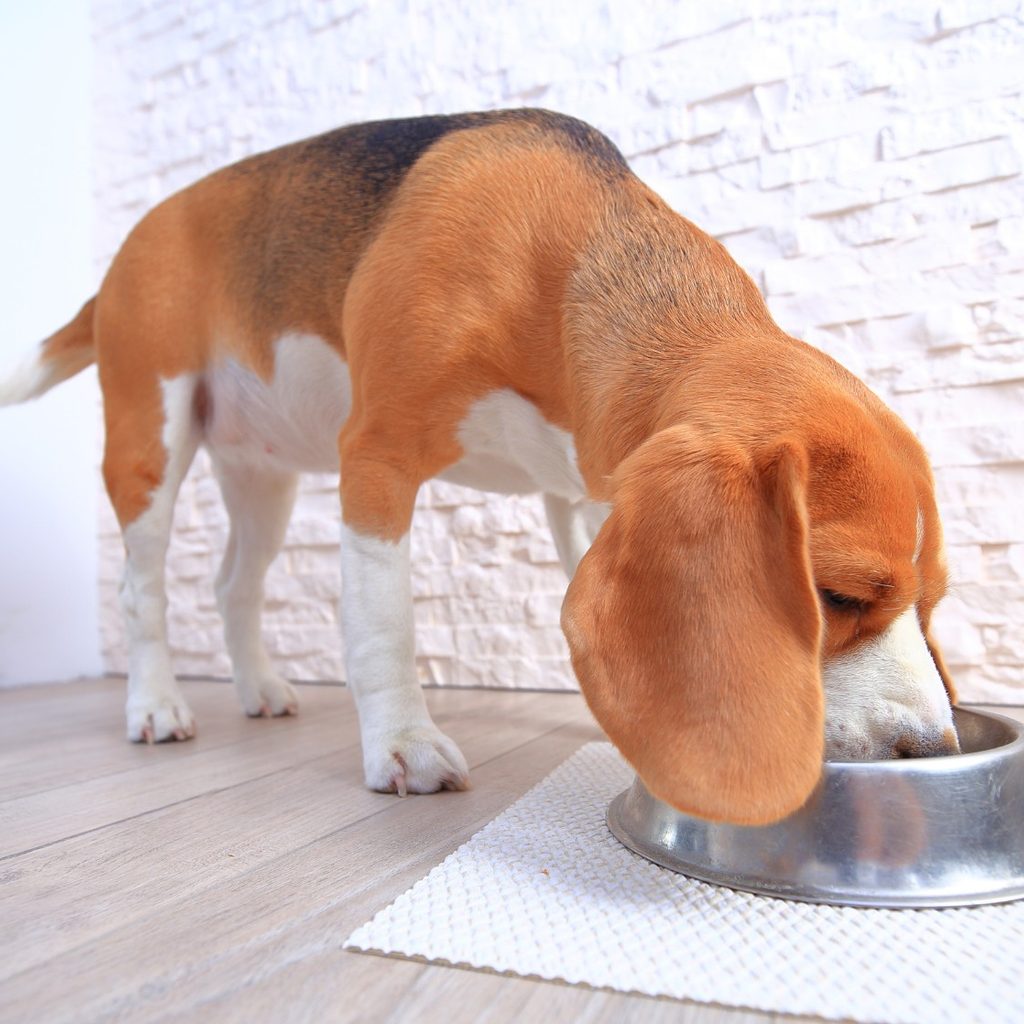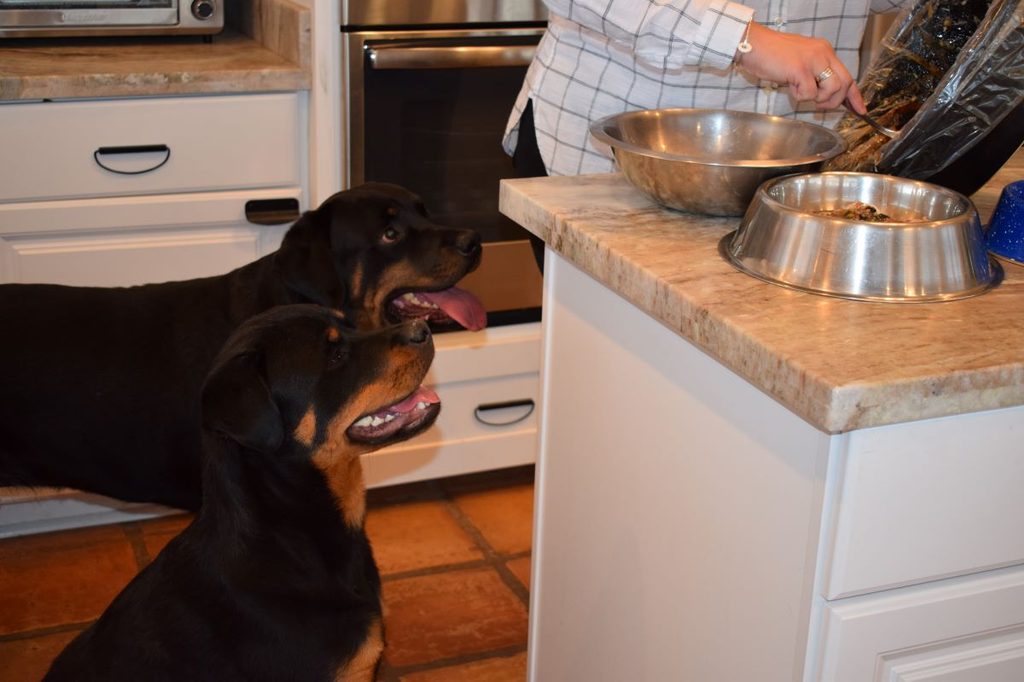
You’ve probably heard guidance to eat home-cooked meals — for humans. They generally have less salt, and you know the ingredients in each. You’ve probably also heard of cutting down on processed food.
As dog people, we love our furry friends and want what’s best for them. Some foods, like blueberries and bananas, are safe to feed in moderation. However, should you be home cooking your dog’s food? After all, nothing appears more processed than a tiny piece of kibble that’s apparently processed — gasp! — with all the nutrition your pet needs.
Understandably, you may be concerned. However, should you go the homemade dog food route? Veterinarians say you can, but there are a ton of caveats. You may decide it’s not worth it. Here’s what vets want you to know about homemade dog food.
The pros and cons of homemade dog food
Often, you’ll hear vets give a hard “no” when discussing homemade dog food. However, there are vets who say that sometimes giving homemade dog food might be a good idea. We dug in to help pet parents weigh the benefits and drawbacks of making their dog’s food at home.
Pros of making your own dog food
Yes, there are benefits to feeding your dog homemade food.
- Customizable. Every pet is different. “Whether your pet is young or old, active or sedentary, healthy or facing health challenges, fresh pet food can be tailored to their unique nutritional requirements to support their overall well-being,” said Dr. Carolina Domingues, DVM, a veterinarian and diet expert and head of nutrition at Maven.Pet.
- You may actually please your picky eater. Have a dog that rivals a toddler for the world’s pickiest eater? Homemade dog food may do the trick. “Homemade diets are often highly palatable and readily accepted by even fussy dogs,” said Dr. Linda Simon, a veterinary surgeon at Pooch & Mutt. And Dr. Domingues agreed. “Fresh pet food often features a variety of textures and flavors that can appeal to even the pickiest of eaters, making mealtime a more enjoyable experience for your furry friend,” Dr. Domingues said.
- Homemade food is packed with phytonutrients. Human food has nutrients that may help your pet. “Fresh pet food contains a range of phytonutrients from fresh fruits, vegetables, and herbs, which have antioxidant and anti-inflammatory properties that can help support your pet’s health and vitality,” Dr. Domingues stated.
Cons of homemade dog food
As you might expect, homemade dog food isn’t a slam dunk.
- Are you a dog nutrition expert? If not, you’ll want to lean on one when meal planning for your pup. You may know your pet best, but be honest about your knowledge of nutrition science. “While formulating a complete and balanced homemade diet for pets can be rewarding, it is a complex task that requires careful consideration of the pet’s nutritional requirements,” Dr. Domingues commented. “Without the guidance of a qualified veterinary nutritionist, homemade diets may not meet a pet’s specific needs, leading to potential health issues in the long term.”
- It’s an incredibly time-consuming task. Preparing homemade food for your dog isn’t as simple as sharing your meal with your pet. “Preparing homemade pet food requires a significant time commitment, which may be challenging for busy pet parents,” Dr. Domingues stated. “Properly sourcing and preparing ingredients, as well as measuring and portioning meals, can take up a considerable amount of time each week,” she added. You may prefer to spend that time walking, playing with, and cuddling your pup.
- Homemade dog food can get expensive. Run some numbers. Depending on the commercial food you’re using, you may or may not get sticker shock. “While homemade diets can be less expensive than some high-end commercial pet foods, they can also be costly to prepare properly,” Dr. Domingues said. “High-quality ingredients, as well as necessary supplements, can be expensive, and working with a veterinary nutritionist to formulate the diet can also come with added costs.”
- Attention to detail is critical. “Preparing homemade pet food requires meticulous attention to detail, including selecting the right ingredients, following recipe steps precisely, and measuring and cooking ingredients accurately,” Dr. Domingues stated. “Inaccuracies can lead to imbalanced diets, potentially harming a pet’s health.”
Considerations before making homemade dog food
Several factors will go into ingredients and portion sizes.
“Owners must appreciate that a puppy needs a different diet to an adult, which needs a different diet to a senior,” Dr. Simon stated. “Similarly, nutritional needs change if a dog is pregnant, lactating, or has a medical disorder.”
Dr. Domingues agreed — one recipe will not fit all, and the cliché that “food is medicine” does not ring true here. “It is not a substitute for necessary medication when needed,” she said. “It’s also vital to prioritize preventive healthcare and good nutrition from early life stages to avoid future health issues and increase the likelihood of a long and healthy life for pets.”

Bottom line — should you make your dog’s food?
While there are some benefits to homemade dog food, it’s not the vets’ first recommendation.
“It is better to provide pets with a commercially balanced diet that follows AAFCO standards and is appropriate for their life stage, size, and species,” Dr. Domingues said.
Dr. Simon agreed.
“I don’t generally recommend homemade diets as they’re so easy to get wrong,” Dr. Simon stated. “Feeding a balanced, good quality dog food is my preferred option.”




